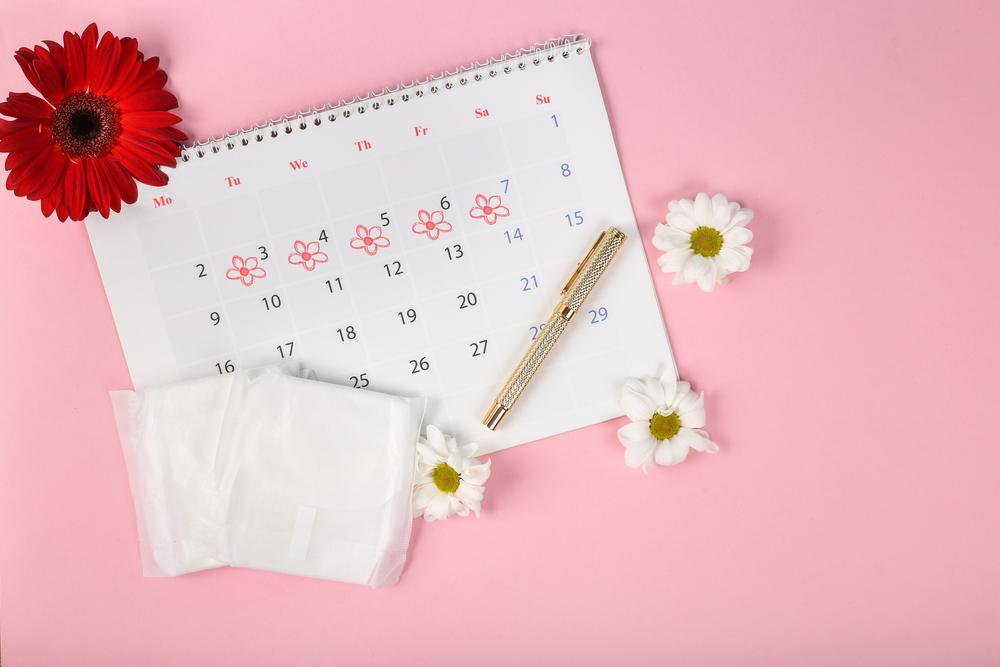What is the Ruling of Getting Intimate Before Spotting Blood?
Answered by Mawlana Ilyas Patel
Question
I have been feeling very concerned and guilty about whether we had sinned by getting intimate before my wife had a spotting of blood. We saw the spotting in the clothes but still got intimate. We thought it was spotting since often my wife gets spotting. And then stops. The doctor told me it was highly possible because of vaccination side effects.
One week ago (last Thursday), menses were over, ghusl was done, and prayers were done normally. This situation occurred on the following Friday (9 days after ghusl). During getting intimate, no blood was seen, but just after the ghusl, there was a blood flood Friday/Saturday/Sunday went down. I cannot be at ease until I get the doubt cleared. Jazak Allah
Answer
In the Name of Allah, the Most Merciful and Compassionate
I pray you are in good faith and health. Thank you for your question.
It seems your wife did complete her monthly cycle of menstruation. This spotting of blood is just an irregular amount of bleeding. Do wudu for each prayer and worship as usual while in this state. You can do things as usual: pray as expected, fast if it is during the month of Ramadan, recite the Quran and touch it, enter a mosque, perform Tawaf with wudu, and have intimacy with one’s husband.
Advice
Every woman must record her menses, lochia, and purity habits. The date and time any vaginal blood begins, including the spotting of blood, and the date and time any vaginal blood ends.
I advise contacting a local reliable female scholar who is well-versed in menstruation matters. Also, try to attend any on-the-ground and online courses on menstruation. Also, at your first instance, buy books related to the topic; some are in the link below.
It is a personal obligation (fard) for every adult woman to learn the basic rules of menstruation and to ask, as you’ve done, in the case of a complicated or unique situation. The books Woman’s Guide to Menstruation Rulings by Naielah Ackbarali and Coming of Age by Ustadha Hedaya Hartford are very accessible books for learning these rulings. They are in English and have many practical examples, life experiences, and even illustrative charts to calculate menstruation.
Also, you can download a first-ever menstruation period tracking app, which is personalized for Muslim women to understand menses, purity, irregular bleeding, lochia, etc., at first glance! The application is in harmony with religious scholarship.
Related Answers
- How Do I Perform My Missed Prayers and Current Prayers in a State of Irregular Bleeding (Istihada)? – SeekersGuidance
- Menstruation: A Comprehensive Reader – SeekersGuidance
- A Muslim Woman’s Guide To Menstruation Rulings: Amazon.co.uk: Ackbarali, Naielah (Recommended book)
- Coming of Age by Hedaya Hartford (Recommended book)
- myhayd.app | First Ever Islamic Period Tracking App Personalized For Muslim Women | Hayd Tuhr Istihadah Nifaas Pregnancy
- FREE Fiqh of Menstruation Video Series
Wassalam,
[Mawlana] Ilyas Patel
Checked and Approved by Shaykh Faraz Rabbani
Mawlana Ilyas Patel is a traditionally-trained scholar who has studied in the UK, India, Pakistan, Syria, Jordan, and Turkey. He started his early education in the UK. He went on to complete the hifz of the Quran in India, then enrolled in an Islamic seminary in the UK, where he studied the secular and ‘Aalimiyya sciences. He then traveled to Karachi, Pakistan. He has been an Imam in Rep of Ireland for several years. He has taught hifz of the Quran, Tajwid, Fiqh, and many other Islamic sciences to children and adults onsite and online extensively in the UK and Ireland. He taught at a local Islamic seminary for 12 years in the UK, where he was a librarian and a teacher of Islamic sciences. He currently resides in the UK with his wife. His interest is a love of books and gardening.
